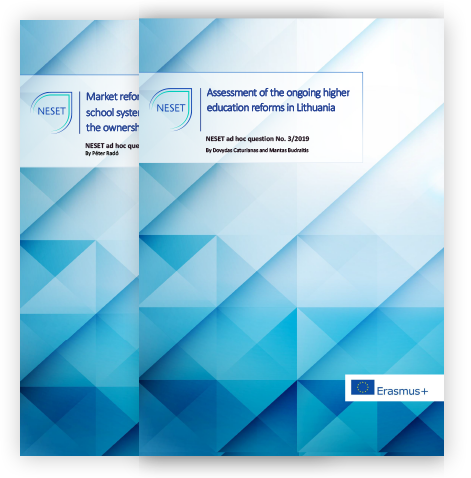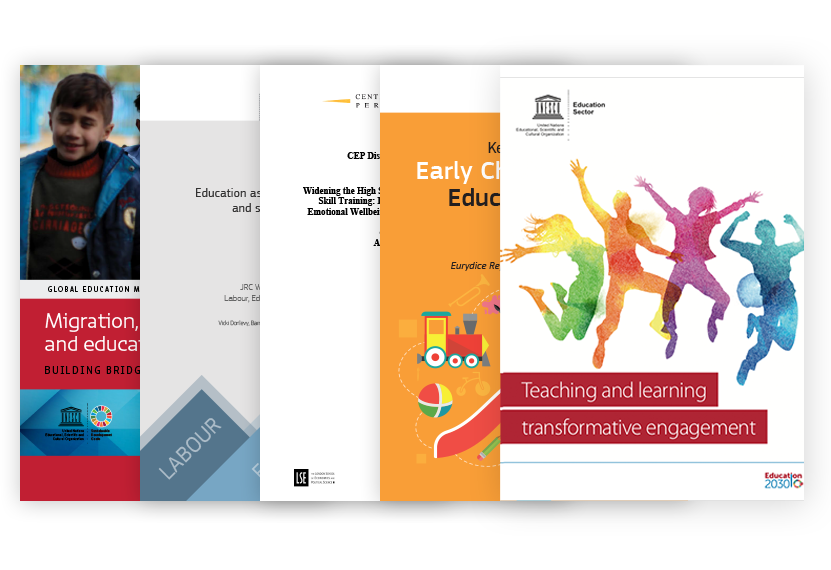A new edition of the quarterly newsletter is out!
NESET recently published a new quarterly newsletter, available for all stakeholders. We provide a quick synopsis below; you are also invited to access the online version here.
- You can subscribe to receive a quarterly digest of latest news from the Network community and beyond by clicking here.
Key developments
 The edition of September 2019 covers the news about our website launch and an overview of recently published deliverables. If you have not had the chance to read them, visit our library or by clicking the hyperlinks.
The edition of September 2019 covers the news about our website launch and an overview of recently published deliverables. If you have not had the chance to read them, visit our library or by clicking the hyperlinks.
‘Market reforms in the Hungarian school system: impact of changes in the ownership structure‘ has been prepared by Péter Radó, while Dovydas Caturianas and Mantas Budraitis developed the ‘Assessment of the ongoing higher education reforms in Lithuania‘. The section also outlines the list of forthcoming analytical and ad hoc reports.
Invitations to events
The newsletter features several open calls to participate in events, conferences and workshops, courtesy of DG EAC, International Association for Intercultural Education (IAIE), DENISE and InGRID-2.
Updates from the Network community
We present the news and updates from our members, as well as European organisations and networks – European Sociological Association (ESA) and SIRIUS, a European Policy Network on the education of children and young people with a migrant background.
News from our Network include mentions of the Consortium of Higher Education Researchers (CHER) 32nd Annual Conference and the International Research Conference (IRC-2019), organised by IEA (International Association for the Evaluation of Educational Achievement).
We also celebrate interesting research activities, namely, the new edition of the Hungarian Educational Research Journal (HERJ), Croatia adopting the National Plan for Enhancing the Social Dimension of Higher Education (2019–2021), and a brand new tool for tackling ‘fake news’ and disinformation with critical media literacy. We also share an announcement from the Eurochild network, which aims to discuss the prospect of a European Commissioner for Children.
Recommended readings
Finally, we look outside the scope of the Network and provide access to recent reports, covering topics such as migration, Early Childhood Education and Care (ECEC), learners’ engagement, soft skill training and education as self-satisfaction and self-fulfillment.
The reports are prepared by UNESCO and LSE’s Centre of Economic Performance, as well as by fellow DG EAC knowledge providers – Eurydice and the Joint Research Centre (JRC).
- New report reveals what works in teaching reading: effective practices to improve literacy results
- New study highlights broader educational benefits of Learning for Sustainability
- The latest and final NESET Newsletter is out!
- New ad hoc report on Screen time and Educational Outcomes is out!
- Insightful NESET Webinar on Closing the Gender Gap in STEM Education: What Works?
- Join the Webinar: Closing the gender gap in STEM education. What works?
- New Analytical Report on Quality Frameworks in Early Childhood Education and Care (ECEC) is out!
- Emerging trends on the social dimension of Education and Training: key insights from January to June 2024
- New NESET report addresses the gender gap in STEM education across educational levels
- Upcoming webinars in June on the thematic of wellbeing

